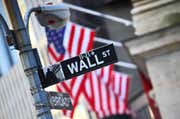A Designated Market Maker (DMM) is a member of a stock exchange who facilitates the trading of a given stock by holding an inventory of the stock, posting bid and ask prices, managing limit orders and executing trades. Their job is to keep the market in equilibrium. If there’s a large shift in demand on the buy or sell side, the specialist sells off his or her own inventory to meet demand until the gap between supply and demand returns to normal. (For more, see What is Equilibrium?)
Previously known as specialists, these market participants joined the floor of the NYSE in 1872. Although all NYSE markets operate electronically today, NYSE and NYSE American still utilize Designated Market Makers (DMMs). Like the earlier specialists, DMMs are obligated to maintain “fair and orderly” markets for their assigned securities. They operate manually and electronically to facilitate price discovery during the market open and close, as well as during and periods of substantial trading imbalances or instability.
What DMMs do
According to the NYSE website, “DMMs apply keen judgment to knowledge of dynamic trading systems, macroeconomic news and industry specific intelligence, to make their trading decisions. The DMMs are a valuable resource for our listed company community, providing regular communication, making capital commitments, maintaining market integrity, and stepping in during special situations.”
In addition to DMMs, the NYSE uses other people on the floor to keep markets orderly, including:
- Floor brokers. Floor brokers are employees of member firms who execute trades on the exchange floor on behalf of the firm’s clients. They act as agents, buying and selling stock for institutions, hedge funds and broker/dealers. While floor brokers are physically present on the trading floor, they can also participate electronically to provide clients with a complete trading picture.
- Supplemental Liquidity Providers (SLPs). SLPs are market participants who use sophisticated high-speed computers and algorithms to add liquidity to the NYSE and NYSE American markets. They are required to maintain a bid or offer at the National Best Bid or Offer (NBBO) in each assigned security for at least 10% of the trading day. Unlike floor brokers, they trade only their proprietary accounts (not for public customers or an agency) and receive incentives from the exchange for adding liquidity. SLPs are primarily found in more liquid stocks that have at least one million shares of average daily volume.
Electronic Trading: The Role of a Market Maker
-
 Trading
TradingElectronic Trading Tutorial
Learn about the systems that run the market. -
 Insights
InsightsClosing Down The NYSE: What Does It Take?
The New York Stock Exchange has shut its doors multiple times in its long and storied history. We’ll look at when and why the NYSE in this article. -
 Investing
InvestingStock Exchanges: A Global Tour
Check out the history and inner workings of the world's six most well-known stock exchanges. -
 Insights
InsightsThe Birth of Stock Exchanges
Learn about the evolution of stock exchanges, from the Venetian states to the British coffeehouses, and finally to the NYSE. -
 Investing
InvestingWhy Companies Change Exchanges
Companies don't elect to leave an exchange so much as they're asked. Find out why. -
 Investing
InvestingRole Of A Market Maker
A market maker is a firm or an individual that stands ready to buy and sell a particular security throughout the trading session to maintain liquidity and a fair and orderly market in that security. ... -
 Personal Finance
Personal FinanceHandling Bad Advice From a Trusted Advisor
You hire professionals to give you sound advice, but unfortunately that doesn't always happen.



